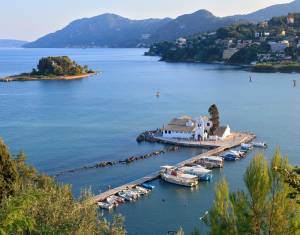Unfolding the Jewish history in Corfu
In the heart of Corfu Old Town, specifically in the district of Spilia, the Jewish quarter is to be found. Often characterized as the “Lady of the Ionian Islands”, Corfu is the second largest island among “Eptanisa”, whereas it has served as a home to many Jewish people since the 12th century.
While the history of Jewish people in Corfu has remained blurry, unclear and at times contradictory, the Jewish district in Corfu is one of the most vibrant and story-telling neighborhoods of Corfu Old Town, since it can be deemed as a living museum. Situated below the New Fortress, or else known as “Fortezza Nuova”, the so-called “Ovriaki” can be described by its half-collapsed constructions, its multi-faceted architecture and its lavishly green courtyards with colorful, fragrant flowers.
Seize the opportunity to unravel the Jewish history of Corfu behind the multi-storey buildings and the atmospheric pathways by taking a private or small group tour in one of the most historically renowned districts in Corfu Old Town.
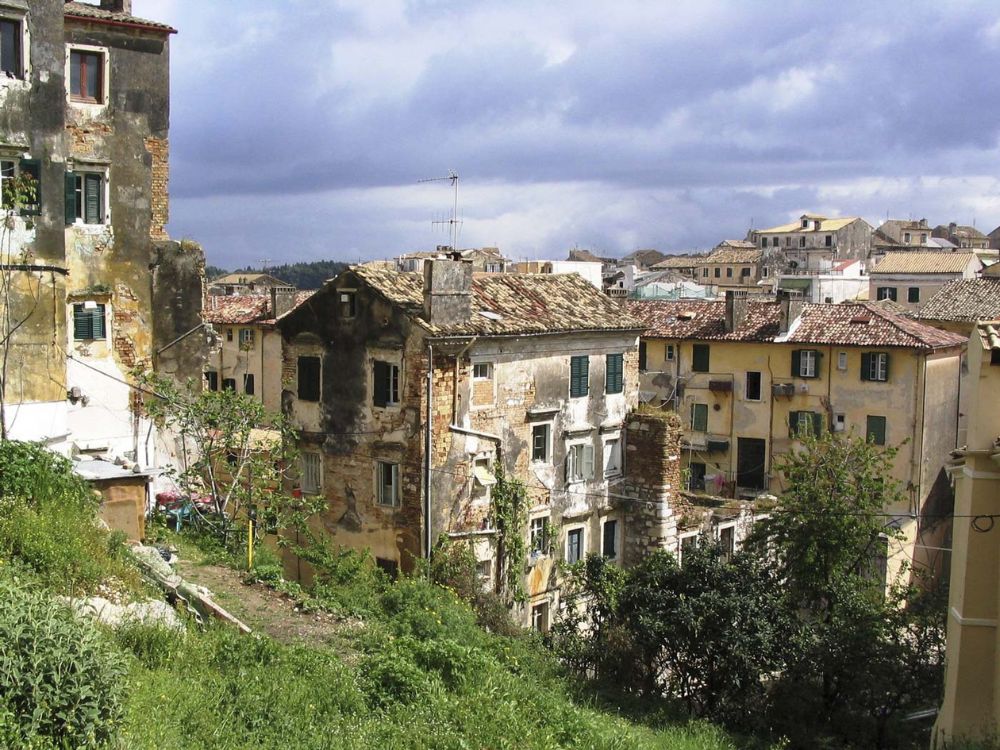
The turbulent Jewish history in Corfu
The first written testimony regarding the presence of Jews in Corfu was delivered by the Spanish Rabbi Benjamin Ben Yonah or Benjamin of Tudela in 1148. According to his itinerary, Benjamim met the Jew dyer Joseph or Iossif, who used to live on Corfu. Moving on to the next century, Jews would live upon the hill of the central neighborhood of “Campiello”, which was back then known as “Ovriovouni”, and it was considered to be the main Jewish neighborhood. There was, indeed, a documentation by some historians in 1267, according to whom “numerous Jews lived in the island”. It was that year until 1336 that the House of Anjou conquered the island of Corfu resulting in the population's hostility towards the Jews. This is why the Princes ordered a decree in order to protect them.
When it comes to their prowess, Jews were adept at trading. Like in any other Greek or European cities, Jews were excellent merchants, something which seemed to please the local communities since Jews’ economic wealth and prosperity as well as knowledge in medicine and law often prevented local citizens’ rivalry.
It was not until 1387, though, when Venetians occupied the island for a long period of time, and forced Jews to live under harsh circumstances. Venetians could not accept the fact that Jews were living on the top of the airy central neighbourhood of Campiello, and thus, they compelled them to relocate in the not-so-developed district of Spilia. In addition to being packed in multi-storey edifices, Jews were living under unsanitary conditions, something which led to high mortality rates.
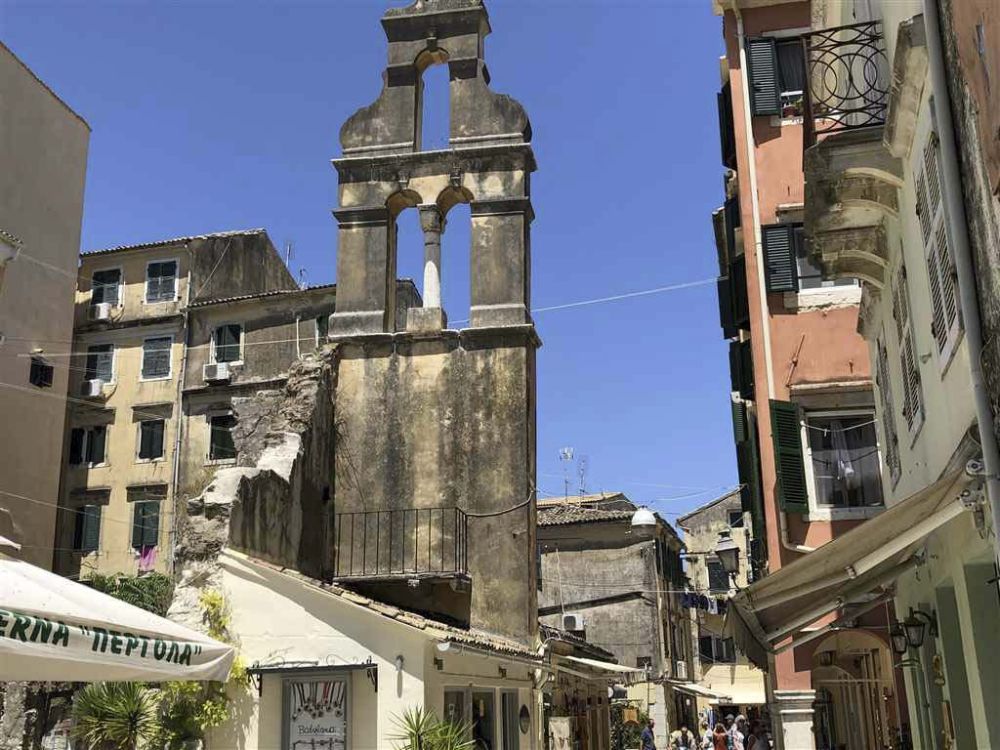
At the same time, many Jews, who were expelled from Spain, Portugal and Italy, moved across the Mediterranean and finally settled in Corfu, wishing to be integrated with the “Romaniote” community. Notwithstanding, the Romaniotes disputed with the “newcomers” since they claimed that they would lose all the privileges in Corfu for which they were fighting over the centuries. This confrontation led to the formation of the “Apulian” community, which was living within the citadel and consequently had its own synagogue.
Following the 16th century, 1537 was a key-date since the first “Synagogue Poulieza” was destroyed. In 1571, although the Venetian State decided to expel Jews from its territory, the Jews of Corfu were exempted since they proved to be beneficial for the city of Corfu.
When the British conquered Corfu in 1817, Jewish people were limited when it came to their rights. However, it was not until 1864 that Jews in Corfu reclaimed their rights and ensured their equality with the rest of the local population thanks to the annexation of Ionian Islands to the Greek state. However, there was an unfortunate turning point in the peace and quietness of this “co-living” when in 1891 “gezera” took place which was triggered by the murder of a 7-year-old Jewish girl.
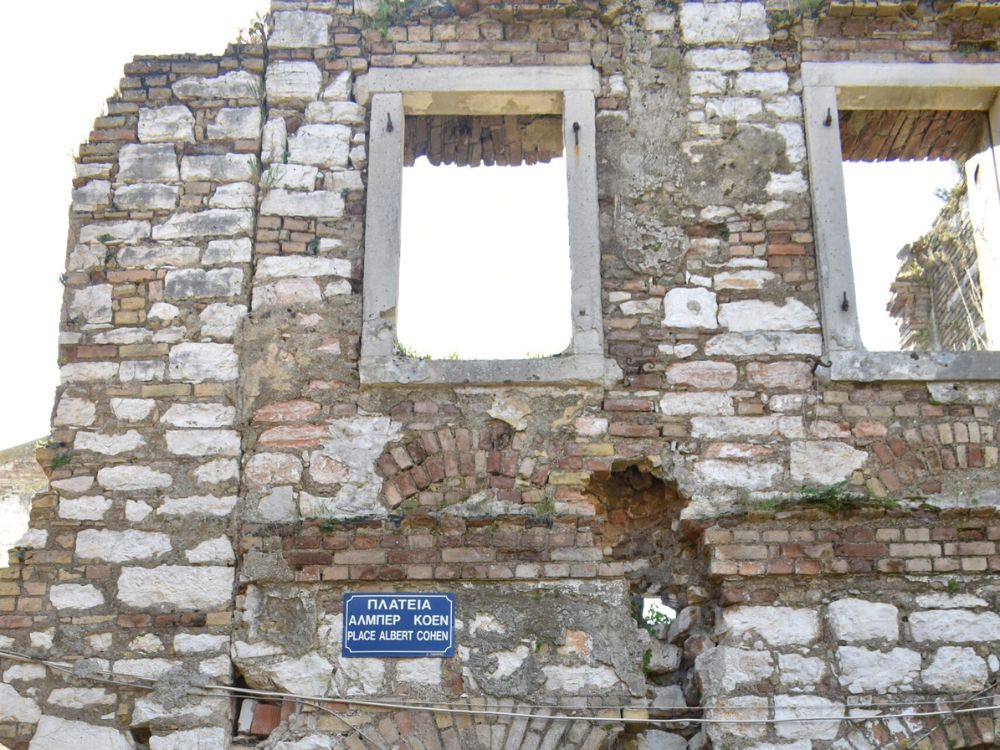
The early phase of Jewish history in Corfu ends with the above anti-Semitic incident which was imputed to religious superstitions such as the “blood libel”, political interests as well as financial competition. After the riots, many Jews were coerced to emigrate to other countries such as France, Italy, Egypt, etc. From the very moment of the latest rivalry until the Second World War, Romaniote and Apulian Communities were integrated, whereas they coexisted harmoniously with the rest of Corfiot population.
Jews of Corfu during the 2nd World War
The Jewish neighbourhood was attacked by an incensed mob. This incident set fire to homes, and desecrated the cemetery. Police set up a perimeter around the neighbourhood, but things quickly spiralled out of control. A month later, troops from mainland Greece had to be sent to help restore order due to the presence of the British fleet off the coast of Corfu. Between 17 and 22 Jews on the island died as a result of the events, and as an outcome of the subsequent migration of many families, by 1941 the community's initial 6,000 members had been reduced to barely 2,000.
After bombing the city and demolishing landmarks like the "Veccia" Synagogue, in September 1943 the Germans finally took control of the island from the Italians. The Nazis gathered all the families in Army Square and led them to the Old Fortress. Jews of all ages gave up their valuable possessions and the keys to their homes out of desperation and helplessness, and those homes immediately started to be looted, and not just by German soldiers. Approximately 2,000 individuals were gradually loaded into barges, ships, and finally freight wagons before being transported to the Auschwitz-Birkenau camp's death chambers and crematoria. Only 200 women were able to escape and hide in the countryside while adopting new names.
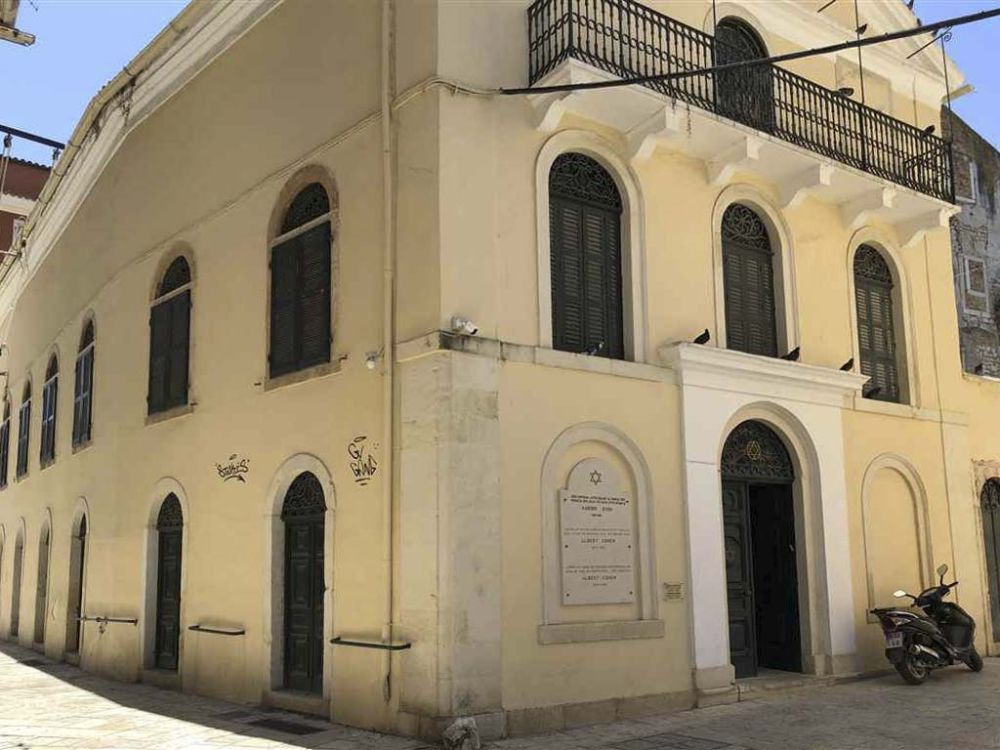
The Synagogues and the Cemetery
The earliest synagogue constructed by immigrants, known as "Kahal Kadosh Italiano Corfiato" or "Poulieza," was destroyed in 1537. On Palaiologou Street, another synagogue known as "Vecchia" or "Midrash" was constructed in the Jewish neighborhood. It was devastated by fire in 1926, rebuilt, and again destroyed by German bombing on September 12, 1943.
During the British occupation, the Romaniote Jews relocated from the "Kahal Kadosh Toshavim" or "Scuola Greca" Synagogue on "Ovriovouni" and established the "Nuova" or "New" Synagogue, where services are being performed today on Velissariou Street. On the ground floor are the Community offices and the funeral service hall.
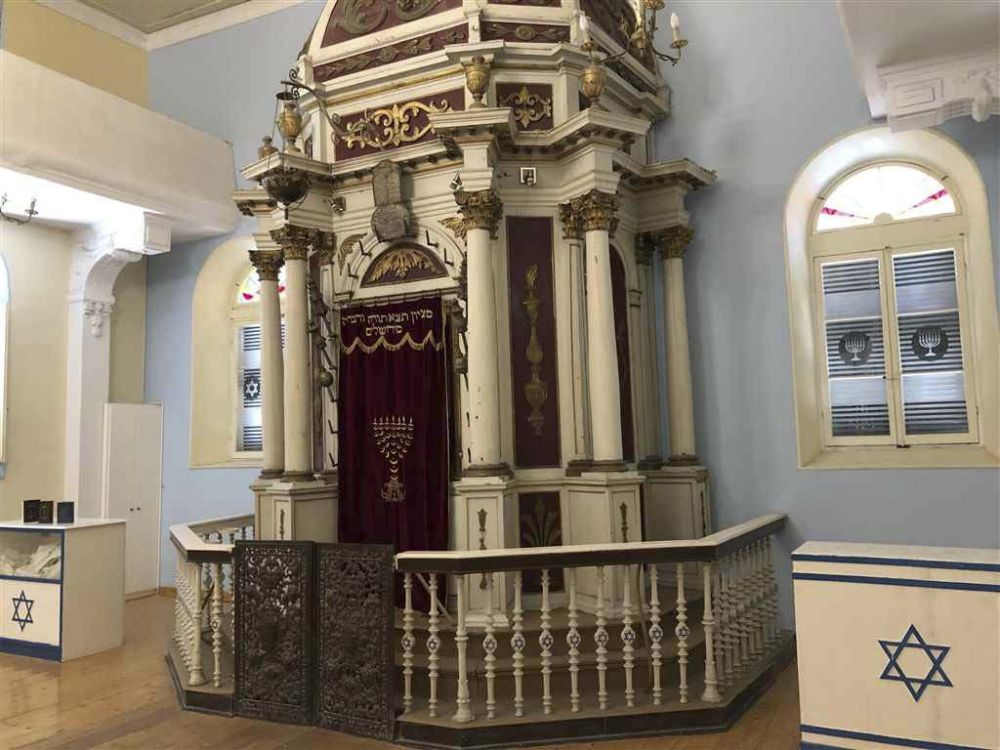
On "Avramiou Hill," which is located just below the New Fortress, the Romaniote cemetery was to be found. Marshal Scholemburg gave this land as "a token of appreciation” to the Jews for their bravery and gallantry during the Turkish siege in 1716. In the "Saroko" neighbourhood, heading towards the Holy Monastery of Platytera, the Sephardic cemetery was next to the Romaniote one. The Venetians gave it up in 1502 in exchange for the territory. Both cemeteries were damaged and destroyed by the Germans while they were controlling the area during the 2nd World War. Next to the Catholic cemetery, in the region known as "Cephalomandouko," the new cemetery lies which is still in use today.
Enjoy a tour to the Jewish quarter of Corfu
A thrilling history of the Jews in Corfu is unfolding ahead of you when walking around the cobble-stoned alleys of the Jewish quarter in Corfu Old Town. Whether you have been already fascinated by the enchanting, still turbulent history of the Jews in Corfu or you are waiting in order to discover it "with you own eyes", it is more than certain that a Jewish Tour in Corfu will leave you speechless. Customize your tour with us by adding a stop to the Jewish district and learn everything you need to know about the earlier Jewish history, the latest Jewish history connected to the persecution of the Jews after the 2nd World War and pay a visit to the Synagogue in "Ovriaki" district. Stand before the statue of "Never again for any nation" and admire the picturesque surroundings of the Jewish neighborhood below the New Fortress.
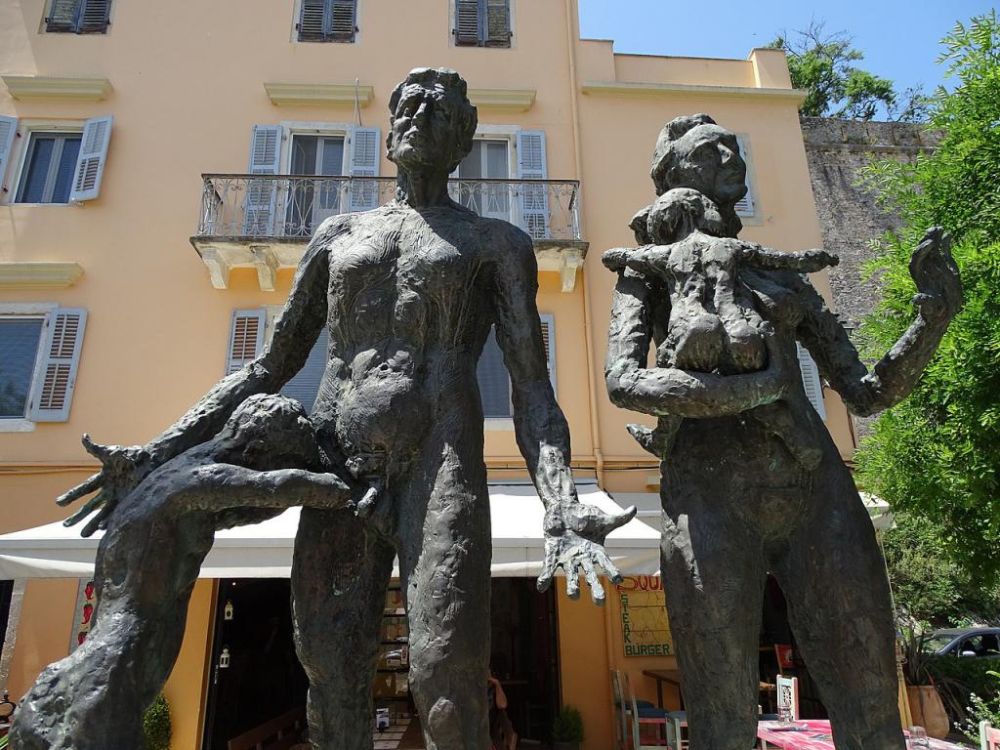
Be sure to book a private Jewish tour according to your needs and specifications. Send us your inquiry and we reassure you that we will provide you with an exceptional tour led by expert tour guides with genuine knowledge about the Jews in Corfu.

